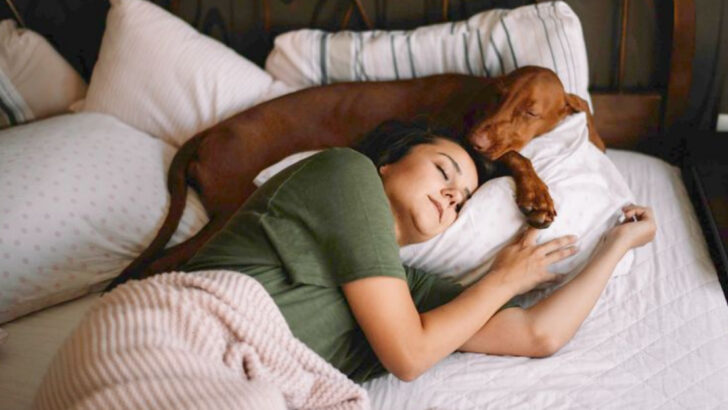Your dog wants in.
Your bed, your blankets, your pillow—maybe even your face.
And let’s be honest, it’s hard to say no to those eyes.
The snuggles? Pure heaven.
The tiny snores? Adorable.
But before you turn your mattress into a shared kingdom of fur and drool, you might want to hit pause.
There’s more to this cuddle-fest than meets the wag.
It’s not just about comfort—it’s about habits, hygiene, and the subtle power plays only dogs truly understand.
One night of cozy companionship could lead to years of territory debates and accidental kicks to the ribs.
So, before you lift the covers and welcome your pup to paradise, let’s walk through what you’re really signing up for.
Because once that paw crosses the line… there’s no going back.
Allergens and Cleanliness

If you suffer from allergies, sharing your bed with a dog might aggravate your symptoms. Even the cleanest dogs can carry allergens like pollen and dust on their fur. This can affect your sleep quality, leading to restless nights.
Regular cleaning can mitigate some of these issues, but consider your tolerance for allergens. Dogs also have natural oils and shed hair, which can accumulate on bedding. Keeping your bedding fresh and clean is essential to minimize exposure.
Decide if the comfort of your pet outweighs potential allergic reactions.
Space and Comfort
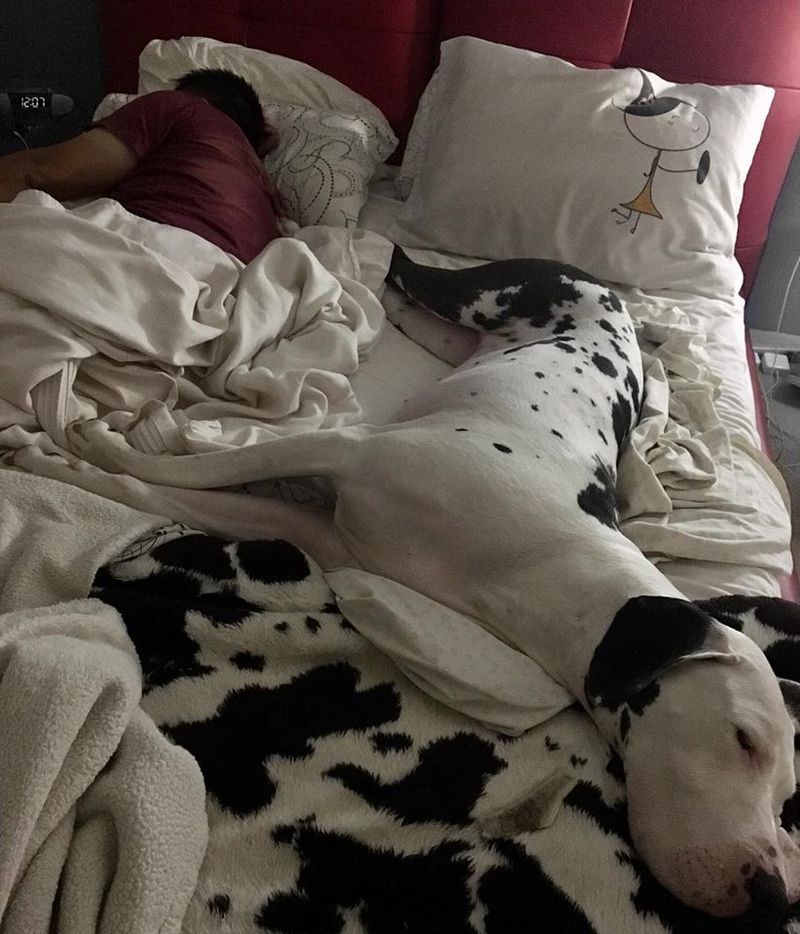
Dogs can take up quite a bit of space, especially larger breeds. Sharing a bed means less room for you to stretch out, potentially leading to discomfort. Consider whether you and your dog can comfortably share the space without waking up cramped.
For those with smaller beds, this could pose a nightly challenge. If you’re someone who moves around a lot during sleep, a dog at your feet or by your side might impede your nocturnal movements.
Think about investing in a larger bed or designated dog sleeping area if space becomes a concern.
Sleep Disruptions
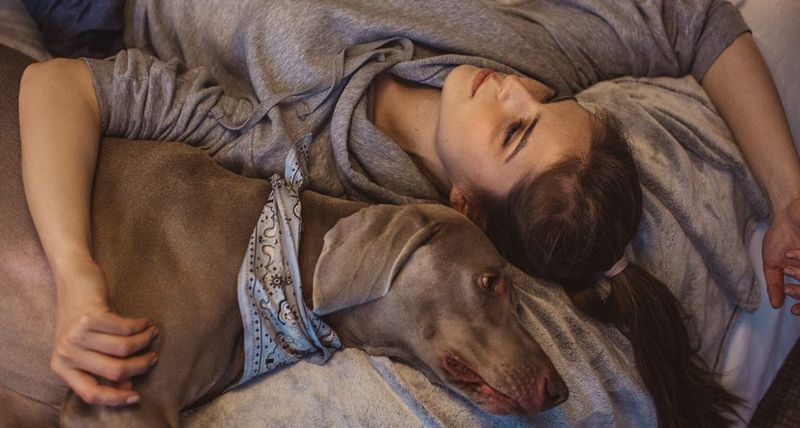
Dogs can be restless sleepers, just like humans. Their movements, from shifting positions to scratching, can disrupt your sleep cycle. Even the sound of a dog’s snoring can become a disturbance.
Evaluate if you’re a light sleeper and how much these disruptions might affect you. Consistent interruptions during the night can lead to a lack of deep sleep, impacting your day-to-day activities.
Consider whether the companionship of your dog at night is worth the potential sleep disruptions.
Behavioral Impact
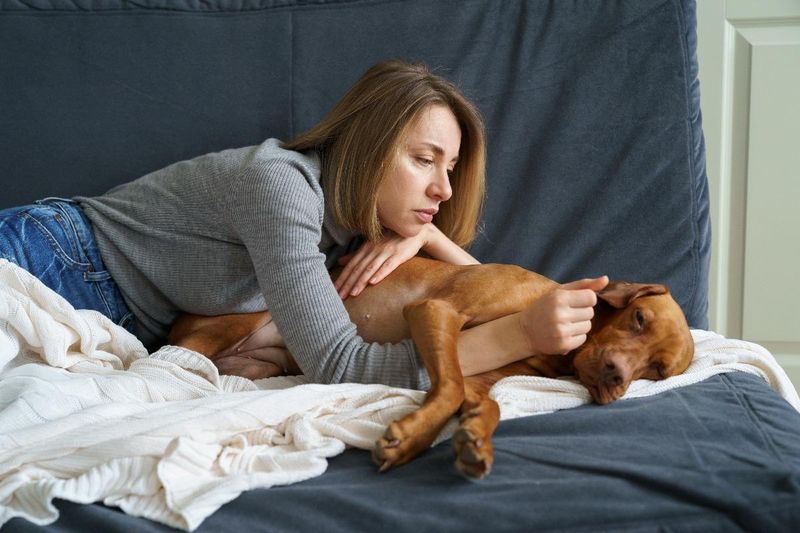
Allowing a dog to sleep in your bed might influence their behavior, making them more dependent on you. Some dogs might become possessive of the bed, leading to issues with dominance. Reflect on whether this could impact your dog’s training and behavior.
Creating a separate sleeping space might enforce boundaries and promote independence. However, some dogs find comfort and security sleeping next to their owner, which can enhance their emotional wellbeing.
Assess what’s best for your dog’s personality and your living situation.
Health Considerations
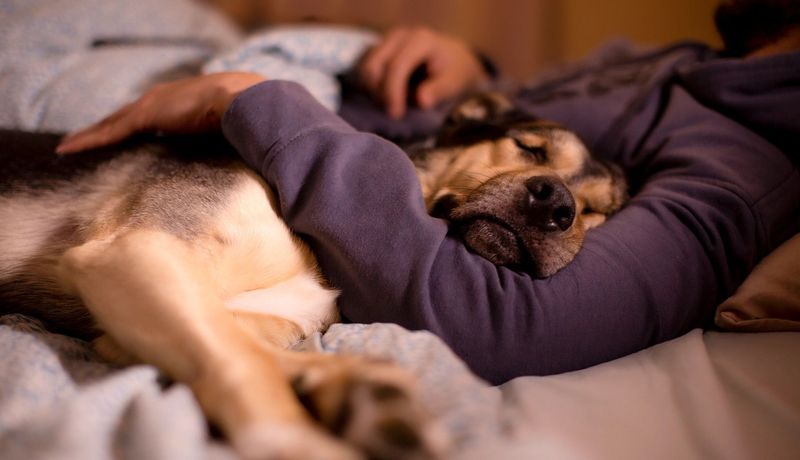
It’s crucial to consider both your health and your dog’s when sharing a sleeping space. Dogs can transmit parasites like fleas and ticks, or even zoonotic diseases. Regular vet check-ups and maintaining your dog’s hygiene can help minimize these risks.
If you’re immunocompromised, consult your doctor about potential health concerns. Dogs also deserve their clean space, and ensuring they’re healthy makes sharing a bed more feasible.
Contemplate if your dog’s health status supports such close quarters sleeping arrangements.
Temperature Regulation
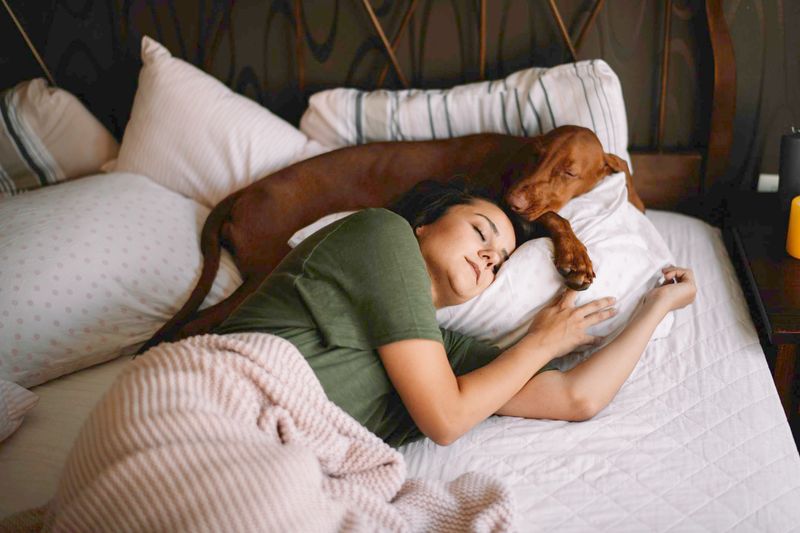
Dogs generate body heat, which can make the bed feel warmer. In summer months, this might lead to discomfort for both you and your pet. Evaluate if this additional warmth is suitable for your climate and personal temperature preferences.
In the winter, this added warmth might be welcome. Consider your dog’s thickness of coat and whether they tend to overheat.
Think about how shared body heat will affect your sleep quality throughout different seasons.
Emotional Bonding

There is something undeniably comforting about having your dog snuggled beside you. This closeness can enhance the bond between you and your pet.
Consider how much you value this companionship and if it outweighs any potential downsides. Dogs often associate sleeping in bed with trust and love, enhancing their loyalty and affection towards you.
Decide if this emotional connection is a priority in your relationship with your furry friend.
Partner Preferences
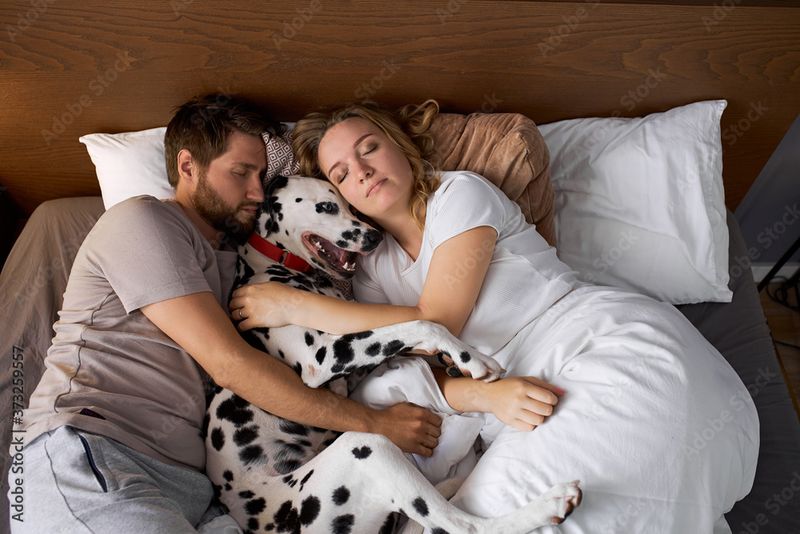
If you share your bed with a partner, their preferences and comfort should be considered. A third occupant might disrupt their sleep or personal space.
Discuss how they feel about having the dog in bed and reach a mutual agreement. Communication is key in maintaining harmony.
Balance your partner’s needs with your dog’s companionship to ensure everyone is content with the sleeping arrangements.
Dog’s Size and Breed

The size and breed of your dog can greatly impact the decision. Larger dogs might take up too much space, while smaller breeds could be more manageable.
Consider how your dog’s physical presence affects your comfort and the bed’s capacity. Some breeds are also more active or nocturnal, which could influence your sleep.
Think about whether your dog’s attributes align with your bed-sharing aspirations.
Training and Discipline

A well-disciplined dog can make bed-sharing a pleasant experience. Training your dog to respect boundaries and respond to commands is essential.
Reflect on your dog’s training level and if they’re likely to obey rules about when and where they can sleep.
Ensure that sleeping in bed doesn’t interfere with your dog’s obedience and overall discipline.
Dog’s Sleep Quality
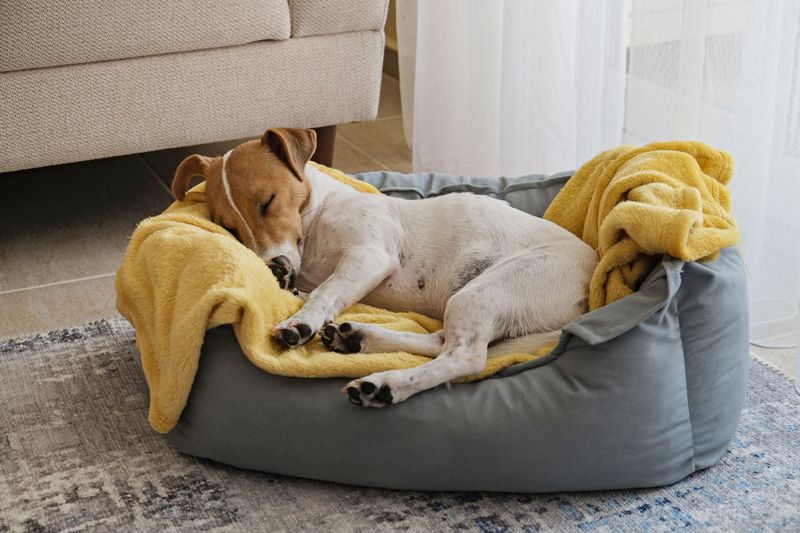
Consider your dog’s comfort and sleep quality. Some dogs might sleep better in their own bed, free from disturbances.
Observe your dog’s behavior and restfulness when they sleep in different locations. Their personal sleep needs should be a factor in your decision.
Contemplate if your bed is the best place for your dog’s rest and relaxation.
Furniture and Bed Condition

Dogs can cause wear and tear on furniture, and beds are no exception. Their claws, fur, and occasional accidents might damage your bedding.
Consider if you’re willing to accept this as part of your bed-sharing arrangement. Protective measures like covers and regular cleaning can help maintain your bed’s condition.
Weigh whether the companionship of your dog is worth the potential impact on your furniture.
Routine Changes
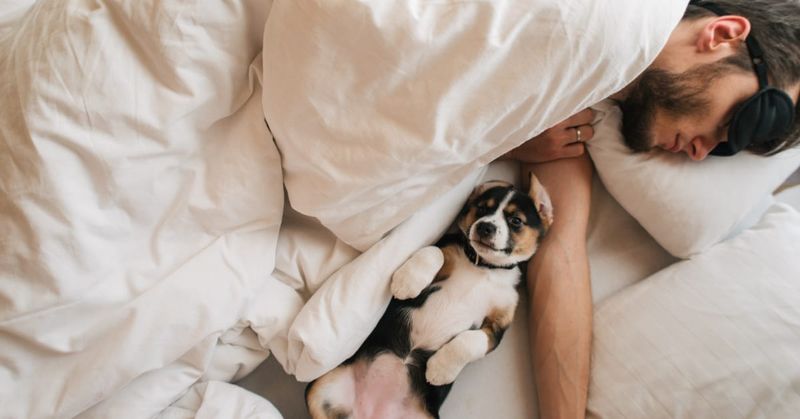
Sharing a bed with your dog might alter your routine, especially if they have different sleep or wake schedules. Dogs might wake you up at odd hours or disrupt your morning routine.
Consider how flexible you are with changes to your daily schedule. Adapting to your dog’s habits can require patience.
Reflect on whether you’re ready to adjust your routine for the sake of sharing your bed with your pet.

